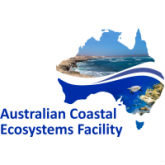Brief description
SEQ Peri-urban Supersite Albert River. The SEQ Peri-urban Supersite was established under TERN in 2010. It provides extensive new research infrastructure for scientists to determine if key ecosystem services such as high-quality water can be maintained in a rapidly urbanising environment. The supersite comprises one node north of Brisbane City and two nodes to the south. At the northern site, in the Samford Valley, the focus is on the study of terrestrial biogeochemistry managed by the Queensland University of Technology (QUT) through the Samford Ecological Research Facility (SERF). The southern-most site, in the catchments of the Logan and Albert Rivers, has a strong aquatic biogeochemistry focus; it is managed by CSIRO. The third node, Karawatha Forest, has a biodiversity focus and is managed by Griffith University. In the SEQ Peri-urban Supersites located on the Logan and Albert River, high-frequency biogeochemical and ecological studies are under way to help scientists understand why they contribute such high loads of nitrogen and sediment into Moreton Bay. Permanent measurement stations have been established at both nodes to provide continuous water quality and flow data. The stations consist of physico-chemical sensors to measure temperature, pH (degree of acidity or alkalinity), Eh (the redox, or reduction-oxidation, character of the water), conductivity, dissolved oxygen, turbidity, chlorophyll, blue green algae, CDOM and nitrate; and a velocity Doppler to measure river flow and height. These measurements will help researchers to quantify land-use change.Issued: 21 01 2014
Data time period: 2008-09-08 to 2013-11-26
text: northlimit=-27.66; southlimit=-28.15; westlimit=152.9; eastLimit=153.25; projection=WGS84
Subjects
Albert River |
South-east Queenland |
albert river |
aquatic biogeochemistry |
boundaries |
catchment |
ecology |
ecosystem services |
high-frequency biogeochemical |
peri-urban |
sediment |
supersites |
water quality monitoring |
User Contributed Tags
Login to tag this record with meaningful keywords to make it easier to discover
Identifiers
- Local : 3ea97d80-30d6-4d6e-99a8-de5b199e9424


